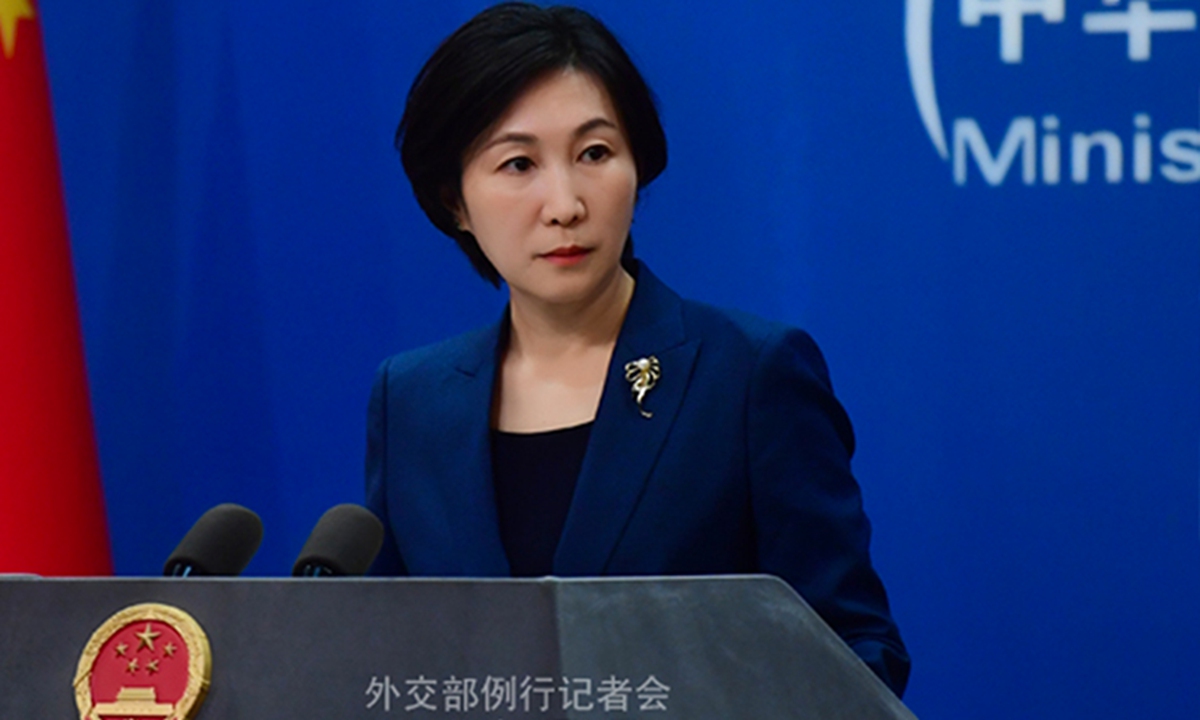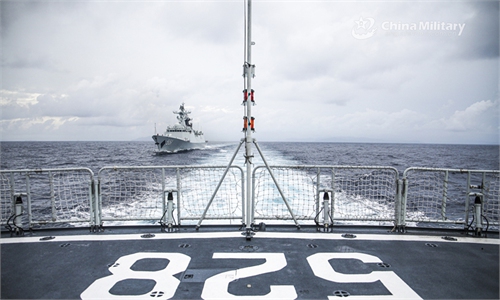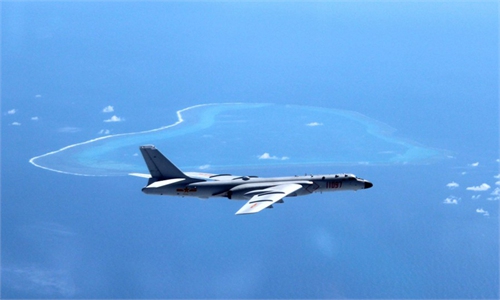Philippines should stop pursuing the wrong course at once on South China Sea issue: Chinese FM

Foreign Ministry Spokesperson Mao Ning Photo: Ministry of Foreign Affairs
After the Philippines repeatedly violated China's sovereignty, and drew forces outside the region into the South China Sea issue, the Chinese Foreign Ministry stated on Monday that the Southeast Asian country should stop pursuing the wrong course at once.Chinese Foreign Ministry spokesperson Mao Ning stated on Monday that China will not weaken in its resolve to protect its territorial sovereignty and maritime rights and interests, after the Philippines repeatedly violated China's sovereignty, spread false news and colluded with foreign forces to undermine peace and stability in the South China Sea.
For months, the Philippines has been making provocations on Ren'ai Jiao (also known as Ren'ai Reef) and other issues and drawing forces outside the region into those issues. China is compelled under those circumstances to take necessary measures to firmly respond to it, Mao said.
Mao noted that China's door of dialogue remains open. "We are ready to work with the Philippines to properly handle maritime issues through negotiation and consultation. We hope the Philippines will stop pursuing the wrong course at once," Mao said.
The Armed Forces of the Philippines (AFP) spokesperson Col. Medel Aguilar said that the country is preparing for more joint patrols with Japan and other countries in the South China Sea, after the Philippines already held a joint air and maritime patrol with the US and Australia, the Philippine Star reported on Monday.
According to Aguilar, the likely joint patrols between the Philippines and its allies may shift from the current bilateral arrangements to multilateral patrols in 2024 and beyond, meaning several countries will become involved.
"The attempt by the Philippines to conduct multilateral patrols indicates that the country believes its comprehensive strength, including in the economic and military fields, is weaker than that of China. If it provokes China alone, the Philippines believes it has no chance of winning, so it seeks to involve external powers on the South China Sea issue," Gu Xiaosong, dean of the ASEAN Research Institute of Hainan Tropical Ocean University, told the Global Times on Monday.
Gu noted that the US, along with some other countries outside the region, is currently playing a role of behind-the-scenes manipulation and support. However, the Philippines' proposal to conduct joint patrols with these countries implies that they will be stepping out from behind the scenes and facing China in a more direct way, he said.
The AFP spokesperson also said that seeking multilateral patrols was part of a "paradigm shift" put forward by Philippines President Ferdinand Marcos Jr., referring to the approach needed by the country in the South China Sea issue, according to Reuters on December 19.
Wu Shicun, president of the National Institute for South China Sea Studies, said at the Global Times Annual Conference 2024 on Saturday that China-Philippines relations are facing unprecedented challenges, and may reach a point of no return during the Marcos Jr. administration.
Wu referred to the instance of security cooperation between the US and the Philippines against China being accelerated under the administration of Marcos Jr., while the Philippines has started a series of provocative incidents in the Ren'ai Jiao.
Given the US' involvement, Wu noted that the US-led militarization of the South China Sea will intensify over the coming years, and the US will continue to be an important influencing factor in the South China Sea.
"China should pay more attention to reducing the US' influence in the region while enhancing its own capacity to stabilize the region," the expert noted.


